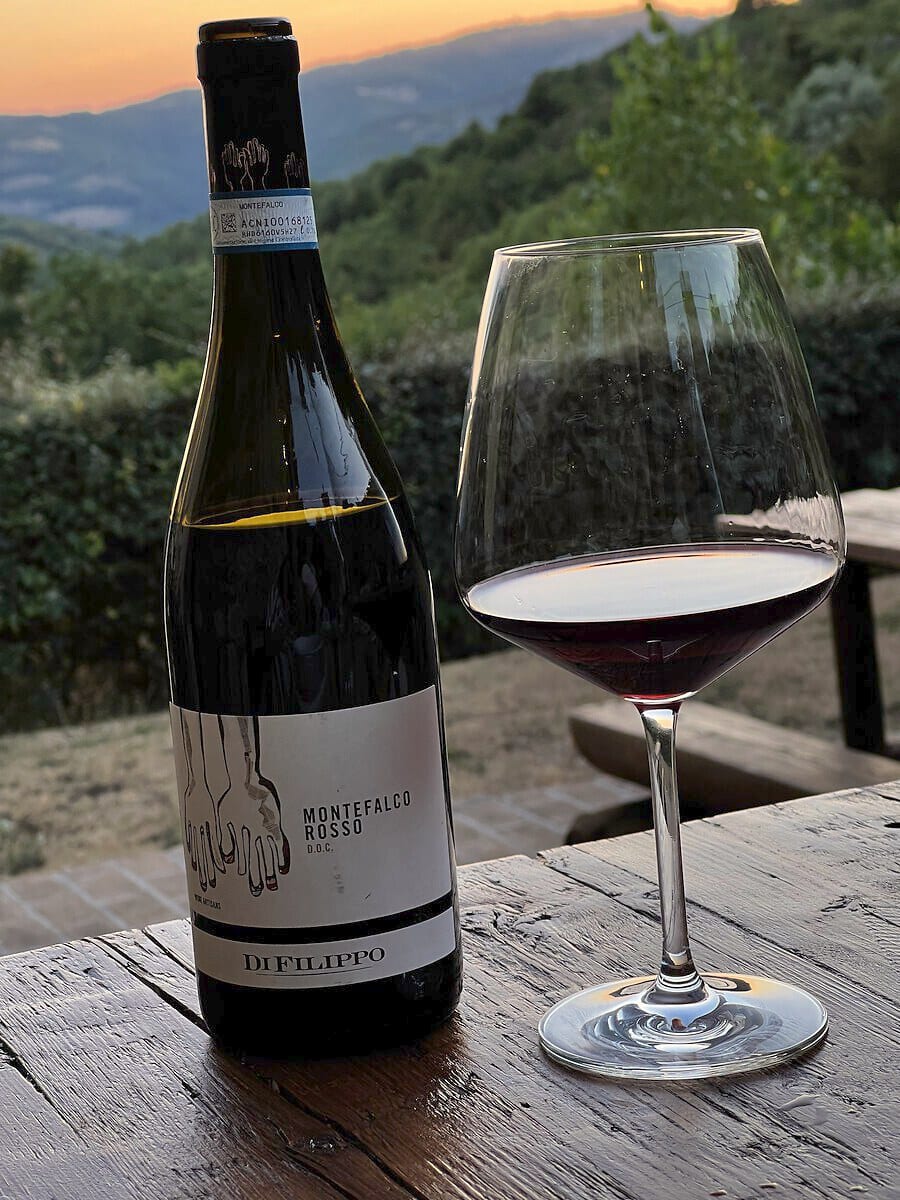Di Filippo "Montefalco Rosso Doc" 2020
Blend of Sangiovese / Barbera / SagrantinoElegant & juicy. Raspberry & violet.
Tasting Notes
Montefalco Rosso Doc 2020 from Di Filippo Wines has a nice ruby colour.
On the nose it’s elegant and fresh with notes of raspberry and violet and just a hint of graphite and dark chocolate.
On the mouth is juicy and moreish, fresh and tart. The tannins are there but they are integrated and gentle. It closes beautifully with a hint of bitter chocolate that lingers on the palate.
The finish is medium long and very pleasant. It’s a very easy drinking wine.

|
|
Di Filippo |
|
|
Montefalco Rosso Doc |
|
|
Red & Still |
|
|
Italy |
|
|
Umbria |
|
|
Sangiovese, Barbera, Sagrantino |
|
|
2020 |
|
|
Learn more
Sangiovese
Wine making grape
Sangiovese is a red Italian wine grape variety named after the Latin sanguis Jovis, which means “Jupiter’s blood.” Though it is native to most of central Italy, from Romagna to Lazio, Campania, and Sicily, it is best known outside of Italy as the sole component of Brunello di Montalcino and Rosso di Montalcino, as well as the primary component of the blends Chianti, Carmignano, Vino Nobile di Montepulciano, and Morellino di Scansano, though it can also be used to make varietal wines like Sangiovese di Romagna
Link to here... | Derived from 'Sangiovese' on WikipediaSagrantino
Varietal
Sagrantino is an Italian grape variety native to the Central Italian region of Umbria. It is primarily grown in the Montefalco village and surrounding region, with a recent rapid increase in planting area dedicated to the grape from 351 hectares in 2000 to 994 hectares in 2010, in the hands of about 50 farmers.
Link to here... | Derived from 'Sagrantino' on Wikipedia
